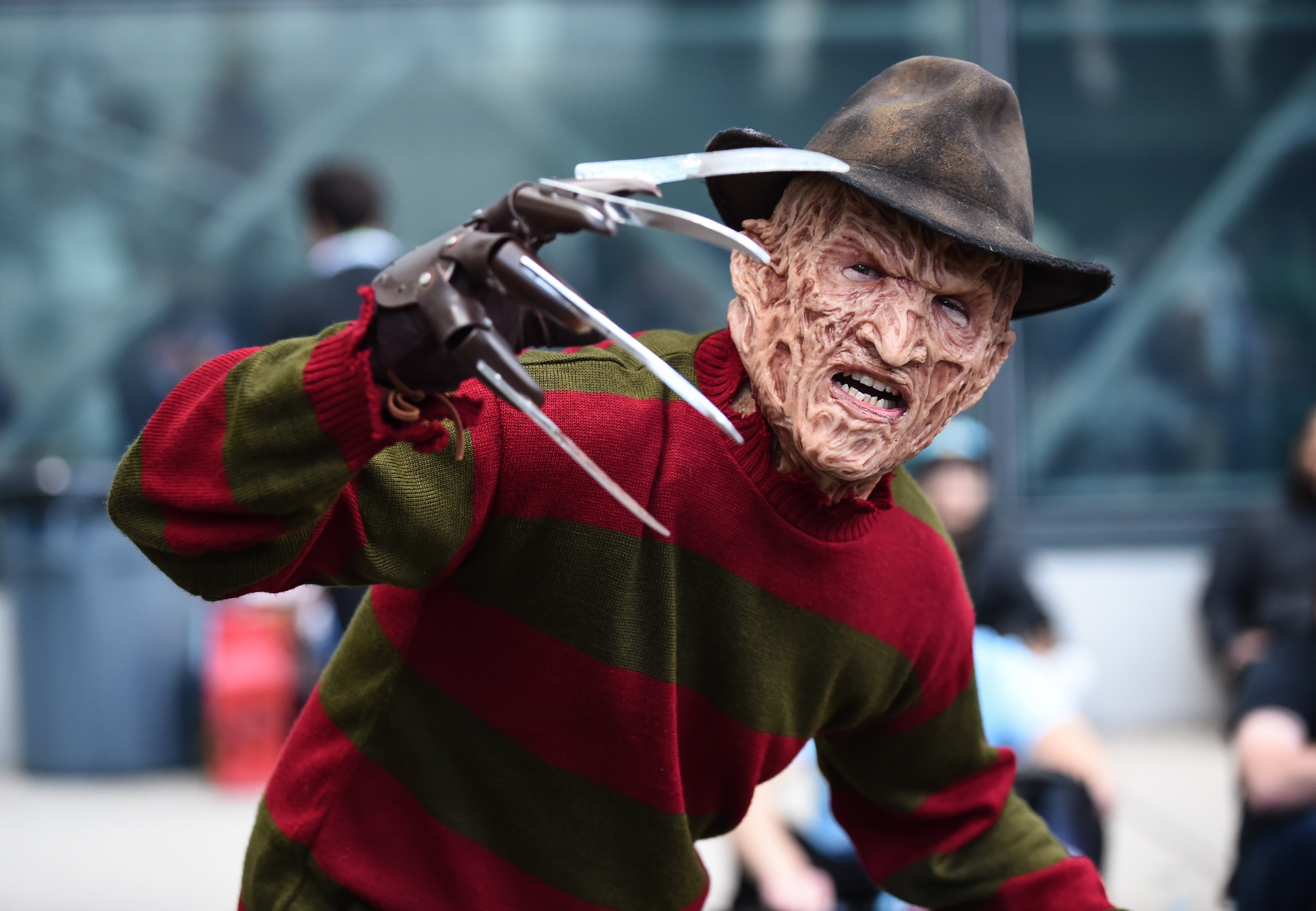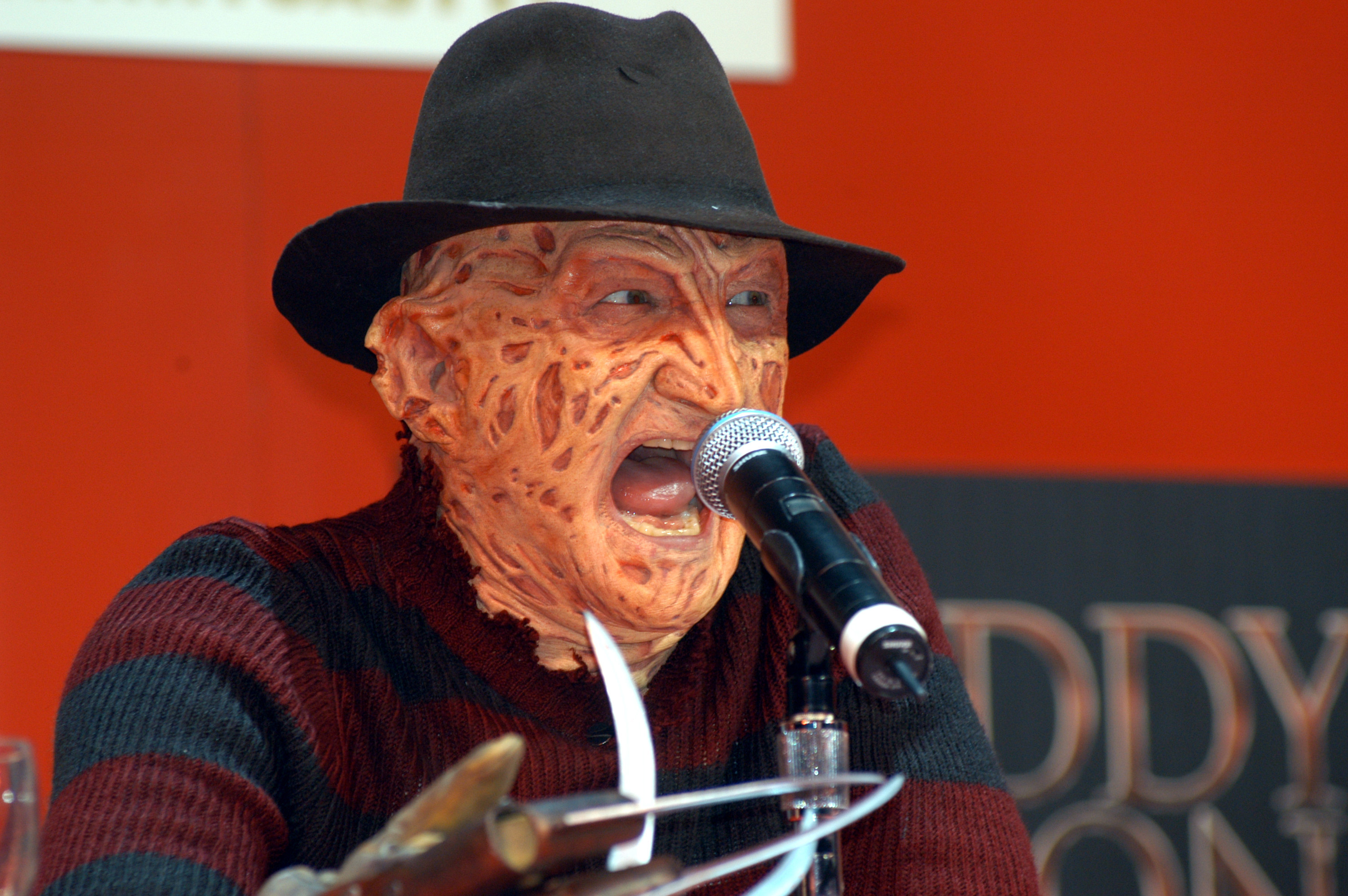The Song That Inspired Freddy Krueger From ‘A Nightmare on Elm Street’
A Nightmare on Elm Street owes much of its existence to a single song. Freddy Krueger’s abilities were partially inspired by the lyrics of a certain progressive rock hit from the 1970s. In addition, the instrumentation of that song influenced the score of the first Nightmare film.

The spiritual rock hit that started a nightmare
According to the book Dream Weaver: A Memoir: Music, Meditation, and My Friendship with George Harrison, rock singer Gary Wright recalled reading a poem by Paramahansa Yogananda called “God! God! God!” The poem included the line “When my mind weaves dreams with threads of memories, on that magic cloth I do emboss: God! God! God!” The line struck Wright and he wrote down the phrase “dream weaver.”
Months later, Wright noticed the phrase in his journal and decided he could write a song around it. Wright wrote “Dream Weaver” over the course of a few hours on his acoustic guitar.
Initially, when he wrote the song, he felt the phrase “dream weaver” referred to imagination. However, he changed his opinion of the track as time went on. He believed the song’s lyric “Dream weaver, I believe you can get me through the night” signified God helping people through hard times. In addition, Wright felt “God can be said to be the Weaver of Dreams in his vast creation, entertaining both Himself and mankind as he weaves epic stories and colossal events that span lifetimes and millennia. … [Only] when we have no more desires or karma to work out and only wish to be one with God in a state of ecstasy will we … enter the highest state of bliss consciousness.”
How ‘Dream Weaver’ inspired Freddy Krueger
Wright’s interpretation of “Dream Weaver” was spiritual and comforting. This stands in stark contrast to the frightening movie series the song inspired. According to the book Behind the Horror: True Stories That Inspired Horror Movies, the line “Dream weaver, you get me through the night,” partly inspired Wes Craven to create Freddy Krueger. Initially, Freddy was going to be a villain who existed only within people’s dreams. After hearing “Dream Weaver,” Craven had the idea that Freddy should be able to alter people’s dreams.

In addition, the instrumentation from “Dream Weaver” had a substantial impact on A Nightmare on Elm Street and its sequels. Specifically, the eerie synthesizer intro of the song inspired the score for the first movie, which was reused in subsequent Nightmare movies. The theme from A Nightmare on Elm Street would become one of the most popular and famous aspects of the franchise.
Through “Dream Weaver,” Wright certainly had a substantial impact on movies. What about his impact on music? Billboard shows Wright never became a major success on the pop charts. Aside from his hit “Love Is Alive,” none of his other songs performed as well as “Dream Weaver.” Regardless, his influence will never die as long as Freddy keeps coming back from the dead.


